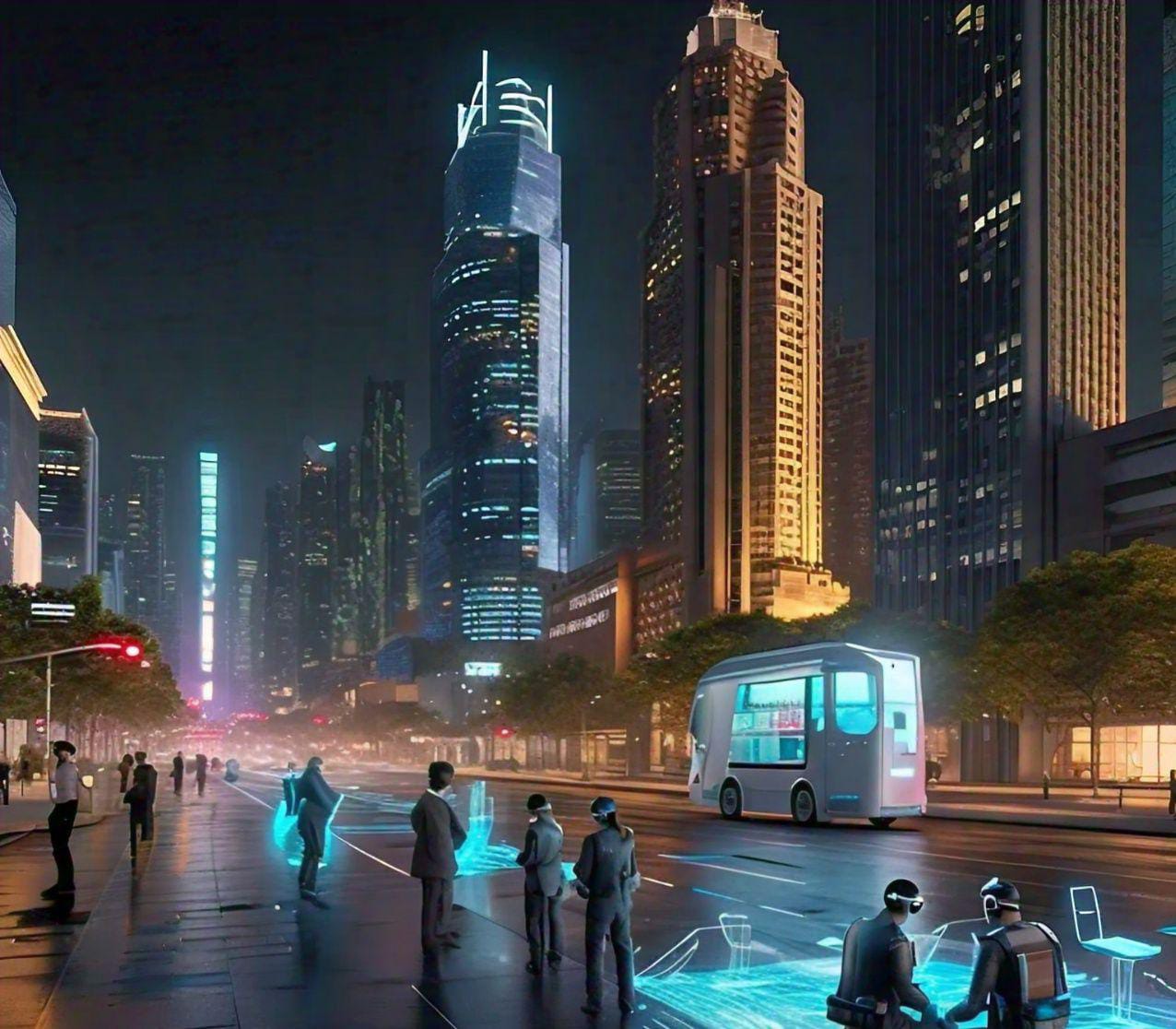The 5G Technology’s Advantages
Outline
- Introduction
- Overview of 5G technology
- Importance of 5G in modern society
- Understanding 5G Technology
- Definition of 5G
- How 5G differs from previous generations
- Speed and Connectivity
- Enhanced data speeds
- Improved connectivity and coverage
- Impact on Mobile Experience
- Faster download and upload speeds
- Reduced latency and better streaming
- Advancements in IoT
- Role of 5G in the Internet of Things
- Smart homes and smart cities
- Benefits for Businesses
- Increased efficiency and productivity
- Enhanced communication and collaboration
- Healthcare Revolution
- Telemedicine and remote surgeries
- Better patient monitoring and data collection
- Autonomous Vehicles
- Role of 5G in self-driving cars
- Enhanced vehicle-to-vehicle communication
- Gaming and Entertainment
- Impact on online gaming
- Enhanced virtual and augmented reality experiences
- Industrial Applications
- Smart Manufacturing
- Improved logistics and supply chain management
- Environmental Benefits
- Energy efficiency
- Role in sustainable practices
- Challenges and Considerations
- Infrastructure requirements
- Security concerns
- Future of 5G
- Potential advancements and innovations
- Long-term societal impact
- Conclusion
- Recap of the benefits
- Final thoughts on the transformative power of 5G
- FAQs
- What is 5G technology?
- How fast is 5G compared to 4G?
- How will 5G impact everyday life?
- Is 5G safe for health?
- When will 5G be widely available?
The 5G Technology’s Advantages
Introduction
Imagine downloading a full-length HD movie in mere seconds, or having a video call without a single glitch, even in a crowded stadium. Welcome to the world of 5G technology. As the fifth generation of mobile network technology, 5G promises to revolutionize the way we connect, communicate, and interact with the world around us. But what exactly makes 5G such a game-changer? Let’s dive into the myriad benefits this technology brings to the table.
Understanding 5G Technology
Definition of 5G
5G, or fifth-generation wireless technology, represents a significant leap from its predecessors, 4G and 3G. It’s designed to be faster, more reliable, and capable of simultaneously supporting many connected devices.
How 5G Differs from Previous Generations
Unlike 4G, which primarily focuses on increasing data speeds, 5G aims to create a comprehensive ecosystem that enhances not just speed but also connectivity, latency, and capacity. This makes it well-suited for advanced applications like autonomous vehicles, smart cities, and immersive virtual reality.
Speed and Connectivity
Enhanced Data Speeds
One of the most talked-about benefits of 5G is its lightning-fast data speeds. With peak speeds estimated to be up to 100 times faster than 4G, users can download and upload data in the blink of an eye. This speed is not just for individual users but also critical for businesses that rely on large data transfers.
Improved Connectivity and Coverage
5G technology offers better connectivity and broader coverage, even in densely populated areas. This means fewer dropped calls and more stable internet connections, enhancing the overall user experience.
Impact on Mobile Experience
Faster Download and Upload Speeds
For the average smartphone user, 5G means quicker access to content. Whether it’s streaming videos, downloading apps, or sharing photos, everything happens faster with 5G.
Reduced Latency and Better Streaming
The time interval before a data transfer starts in response to a command is referred to as latency. With 5G, latency is reduced to as low as 1 millisecond, making real-time interactions and streaming smoother and more enjoyable.
Advancements in IoT
Role of 5G in the Internet of Things
The Internet of Things (IoT) refers to a network of interconnected devices that communicate with each other. 5G’s enhanced connectivity and low latency are perfect for IoT, enabling devices to operate seamlessly and efficiently.
Smart Homes and Smart Cities
From smart refrigerators that can order groceries to intelligent traffic management systems in smart cities, 5G is the backbone that supports these innovations, making our lives more convenient and efficient.
Benefits for Businesses
Increased Efficiency and Productivity
For businesses, 5G technology translates to increased efficiency and productivity. Faster data transfer and better connectivity mean that tasks are completed quicker, and collaboration is enhanced.
Enhanced Communication and Collaboration
With 5G, businesses can leverage advanced communication tools like high-definition video conferencing and real-time data sharing, facilitating better teamwork and decision-making.
Healthcare Revolution
Telemedicine and Remote Surgeries
5G is set to revolutionize healthcare by enabling telemedicine and remote surgeries. Doctors can perform procedures from miles away with precision, thanks to the ultra-low latency of 5G.
Better Patient Monitoring and Data Collection
Wearable devices connected via 5G can continuously monitor patients’ health, providing real-time data to healthcare providers and enabling quicker responses to medical issues.
Autonomous Vehicles
Role of 5G in Self-Driving Cars
Self-driving cars rely on quick and reliable data communication. 5G’s high speed and low latency ensure that these vehicles can communicate with each other and their surroundings efficiently, enhancing safety and performance.
Enhanced Vehicle-to-Vehicle Communication
5G enables vehicles to exchange information about traffic conditions, hazards, and optimal routes, leading to safer and more efficient roadways.
Gaming and Entertainment
Impact on Online Gaming
For gamers, 5G means a more immersive and responsive experience. Reduced lag and high-speed connections allow for smoother gameplay and quicker response times.
Enhanced Virtual and Augmented Reality Experiences
Virtual and augmented reality applications require massive amounts of data and quick processing. 5G supports these needs, making VR and AR more realistic and engaging.
Industrial Applications
Smart Manufacturing
In the industrial sector, 5G enables smart manufacturing processes where machines communicate and coordinate with each other, improving efficiency and reducing downtime.
Improved Logistics and Supply Chain Management
5G enhances logistics by providing real-time tracking of goods and more efficient supply chain management, leading to cost savings and better service delivery.
Environmental Benefits
Energy Efficiency
5G technology is designed to be more energy-efficient than its predecessors, reducing the carbon footprint of mobile networks and contributing to environmental sustainability.
Role in Sustainable Practices
By enabling smarter energy management and reducing waste, 5G supports sustainable practices across various sectors, from agriculture to transportation.
Challenges and Considerations
Infrastructure Requirements
Deploying 5G requires significant infrastructure investment, including new cell towers and updated hardware. This can be a challenge, particularly in rural and underserved areas.
Security Concerns
With increased connectivity comes heightened security risks. Ensuring the safety of 5G networks and protecting user data is crucial.
Future of 5G
Potential Advancements and Innovations
The future of 5G holds exciting possibilities, from advanced AI applications to even more integrated smart city solutions. Continuous innovation will drive further benefits.
Long-Term Societal Impact
In the long term, 5G will fundamentally change how we live, work, and interact. Its impact on society will be profound, driving advancements across multiple domains.
Conclusion
The advent of 5G technology marks a significant milestone in the evolution of communication. With its promise of faster speeds, improved connectivity, and a plethora of applications, 5G is set to transform every aspect of our lives. From enhancing mobile experiences to revolutionizing industries, the benefits of 5G are vast and varied. As we continue to integrate this technology into our daily routines, the future looks brighter and more connected than ever.
FAQs
What is 5G technology? 5G is the fifth generation of mobile network technology, designed to be faster and more reliable, with lower latency and the capacity to connect more devices simultaneously.
How fast is 5G compared to 4G? 5G can be up to 100 times faster than 4G, offering peak speeds that allow for virtually instantaneous data transfer.
How will 5G impact everyday life? 5G will enhance everyday life by improving mobile connectivity, enabling advanced IoT applications, and supporting innovations in healthcare, transportation, and entertainment.
Is 5G safe for health? Extensive research and regulatory guidelines ensure that 5G technology operates within safe exposure limits. Ongoing studies continue to monitor its health effects.
When will 5G be widely available? 5G is already being deployed in many urban areas and is expected to become more widely available globally over the next few years as infrastructure development progresses.








